
High up in the Umbrian hills of Italy, Chang-rae Lee is spending the summer on a farm where olive groves and vineyards play host to one of America’s most celebrated novelists. Not coincidentally, the farm overlooks the Civitella Ranieri Foundation, an artist residency program that hosted Lee two years ago when he first fell in love with the region.
Author of six novels and a creative writing professor at Stanford University, Chang-rae Lee has received more prestigious awards and citations for his writing than we can count. After his fifth novel was published, the Los Angeles Times wrote, “Who is a greater novelist than Chang-rae Lee today?”
This year, Lee was elected as a Member of the American Academy of Arts & Sciences, and was recognized for his lifetime achievement in the Novel with an Award of Merit from the American Academy of Arts and Letters.
Beyond the accolades, Chang-rae Lee is a personal hero to many Korean Americans who were stunned to read their own story in his first novel, Native Speaker. Never before had any best selling American novel told the Korean American immigrant story in such beautifully clear unapologetic prose. His latest novel, My Year Abroad, displays Lee’s virtuosity with fresh vitality as he regales readers with the wild adventures of a young Asian American man whose globe-trotting coming of age journey is as funny as it is delightfully imaginative.
I had a unique opportunity to visit with Chang-rae Lee in Italy and hear a bit more about his life and his own personal journey.
PL: What’s your go-to cocktail?
CRL: Always a Manhattan. I wrote a short piece about it in The New Yorker. My college girlfriend’s father taught me how to make it and I’ve been drinking it ever since. Extra dry with a sliver of orange peel instead of lemon. And no maraschino cherry.
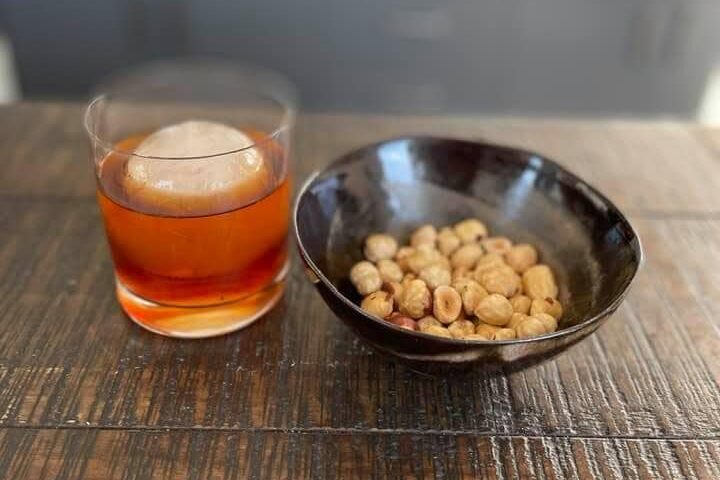
Describe your perfect summer vacation.
Summer is different for me than for most folks because it’s the time when I’m not teaching, and thus a stretch when I can concentrate more fully on my own writing. I enjoy and need a mellow setting where I can do a lot of focused reflection on a project and all its various aspects. I’m in Italy right now, where my wife and I have traveled to regularly over the years. I also adore Hawaii, specifically Oahu. It became a special place for us when I was a writer in residence at Punahou School many years ago.
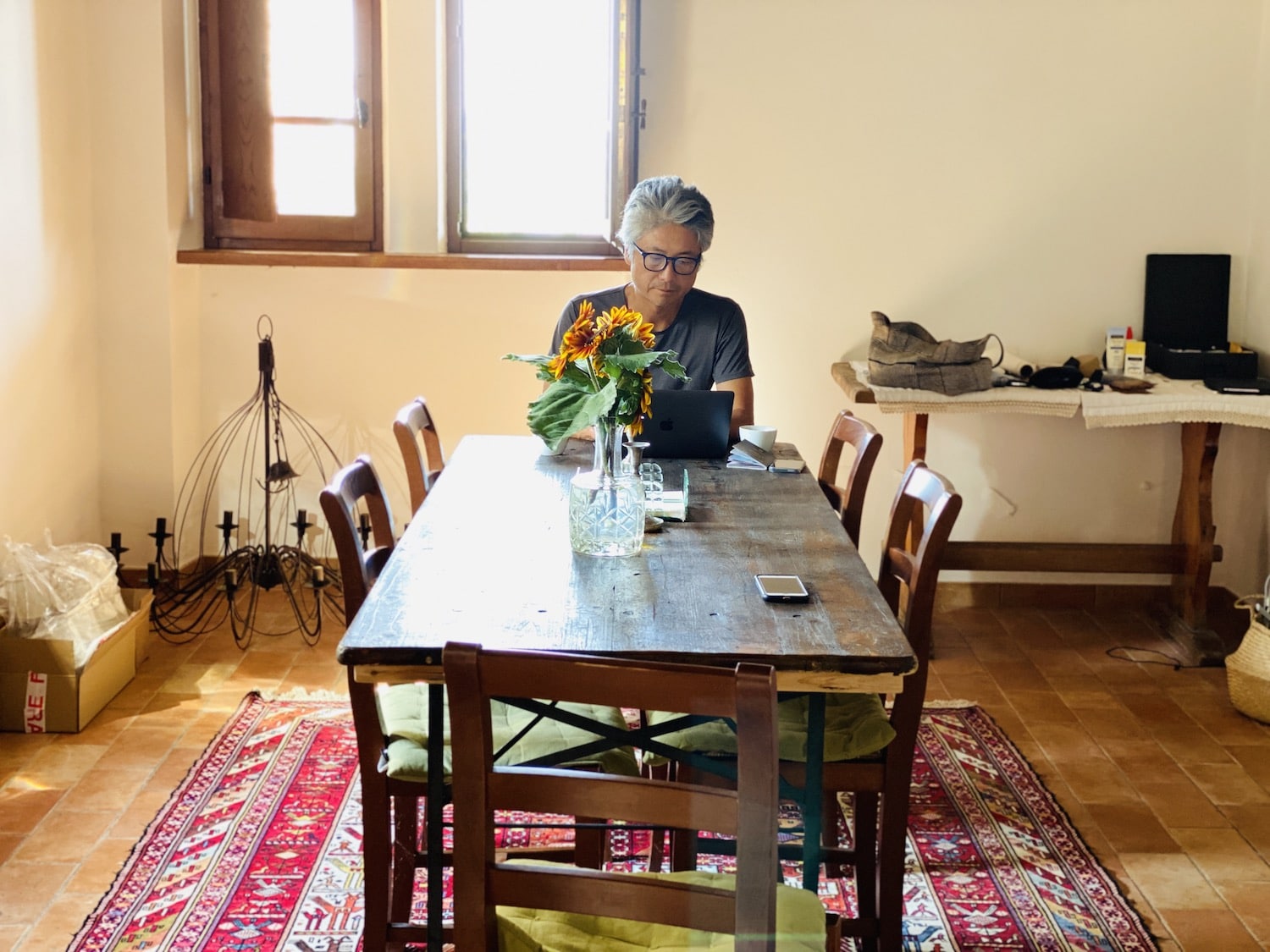
You are spending your summer in Italy and your wife is Italian American. What do Italians and Koreans have in common? How are they different?
Italians and Koreans both are very family oriented and have a deep love for their own culture, with a focus on food and social gatherings. They also share a feeling of being the underdog and having to struggle and even fight for what they have. There’s a toughness about them, as well as a deep streak of practicality. When necessary they don’t mind bending the rules. It’s a survival technique that’s the result of their national histories.
As for differences, perhaps Italians have a different style and appreciation for life. Maybe because their land is so beautiful and there is so much to enjoy in terms of food, wine, mountain, the seas. They have an exuberance and zest for living. Koreans do, too, but perhaps are hungrier, which naturally comes with some anxiety. But the drive for life and its sweetness is there.
What’s your favorite Korean meal/restaurant?
I have two favorites. One is a pork bbq place in Seoul in an old alleyway near Jong-no Sam-ga station. I don’t know the name of the place or what street it’s on but my daughters and I can always find it on foot. You sit on stools outside and grill pork on braziers atop upturned oil drums. Perfect.
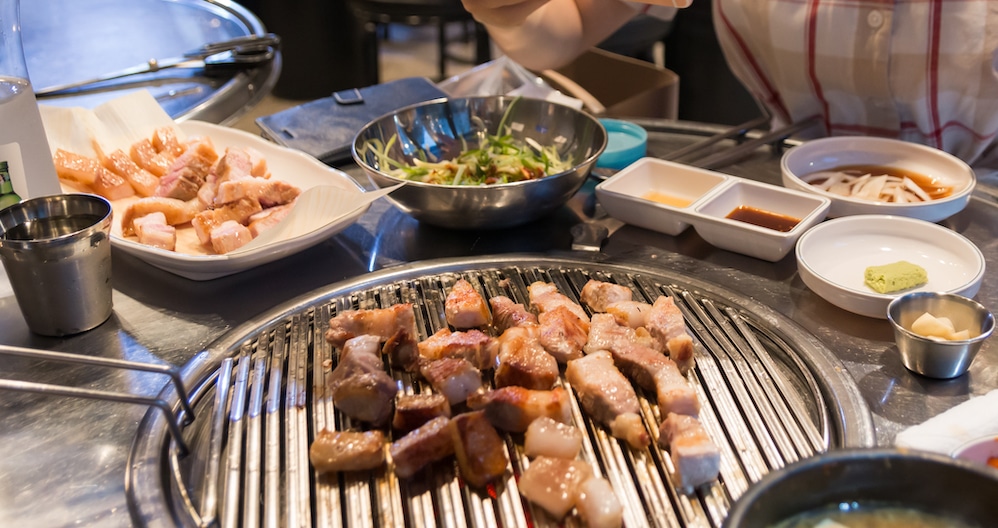
My other favorite hasn’t opened yet! But I know it’s going to be utterly great. My good friend Corey Lee (chef/owner of 3 Michelin star Benu) is opening a Korean restaurant in SF, where I live, called San Ho Won. I believe it will be opening in September and if you know Corey and have tasted his food you know it’s going to be very special.
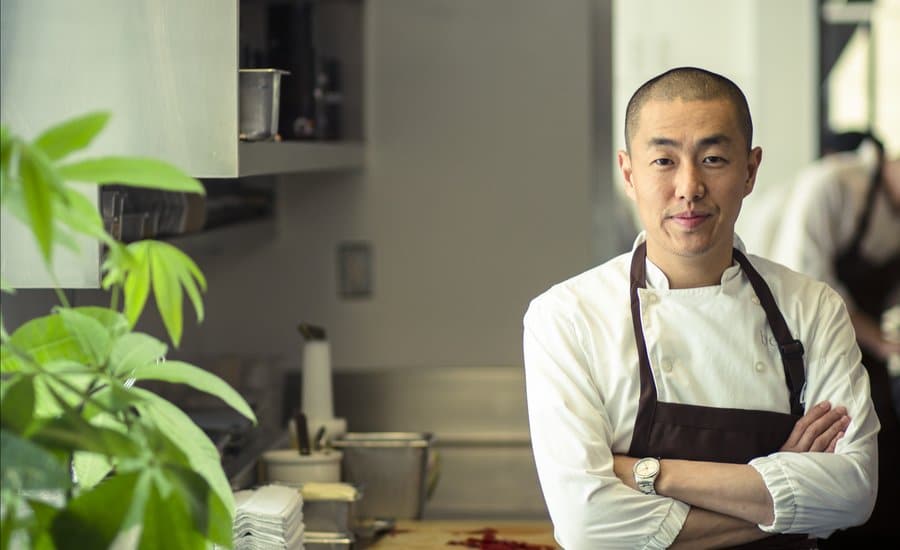
What do you like to splurge on and what are you most frugal about?
I’m frugal about all things. I’m also classically penny wise and pound foolish. I’ll search and search in my favorite shops for that very drinkable $7 bottle of Spanish white. But I’ll also spend way too much on a really great bottle of Montrachet. In the end I can’t believe I’ll have saved any money. It’s more about the chase for something distinctive, something singular, at whatever level. I’m always on the hunt.
What’s your favorite Korean drama or movie?
My wife and I enjoyed Misaeng. I tend to like the dramas about average people who are struggling with everyday challenges, and in this way I feel I’m experiencing and learning more about what most real Koreans are like. I enjoyed Reply 1988 and Itaewon Class for the same reason, watching characters that develop over time. To be honest I also enjoy the fluffy dramas. I watched Crash Landing on You to the end just to see if the characters would ever kiss.
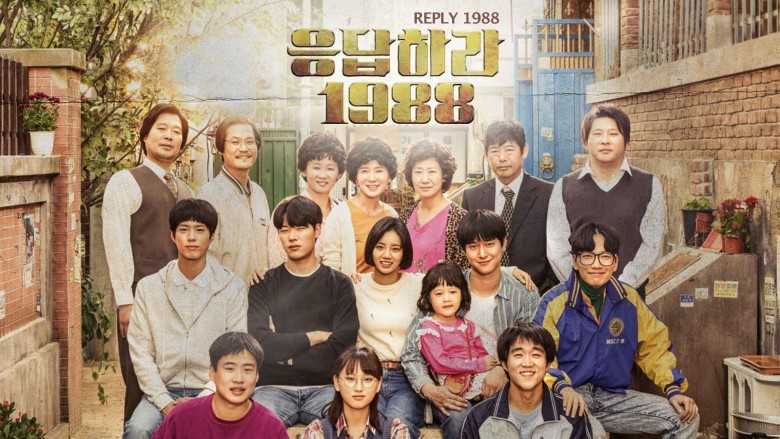
How did you find the courage to quit your Wall Street job to write your first book?
It was a risk I felt I had to take, a moment when it seemed that I had to make a choice to live my life the way I wanted to or not. Or at least try to pursue the work and life I had envisioned for myself. Otherwise, I wouldn’t be living. Surely it also might have been a moment of sheer insanity.
While I was on a low-budget spring break trip to Jamaica, a young local boy showed me how to jump off a cliff into a tiny pool of water, then beckoned me to follow him. It was something like that. I knew If i didn’t try, I’d regret it. So I did. Nothing bad happened, though I suppose it could have. With writing the stakes were not life and death. If I fail, fine. I could always go back to finding a job. But it was also not a casual decision. I was interested in writing my whole life.
What’s the advice you most often give to your students about writing?
I ask my students to identify what they love to read. To ask themselves why they like to read a certain writer, what about their prose or storytelling jazzes them. This can jar something in them, make them confront something in their aesthetics that they hadn’t articulated. Especially talented writers. What makes you singularly you? Nobody wants to read your version of somebody else. Try to surprise yourself.
Native Speaker put you on the map. As you look back on the book, how do you feel about it? Would you write it any differently today?
Every book is an extended snapshot of that personal moment in time, psychically and even bodily, and it’s impossible to go back. I try not to think about past books too much. It’s not interesting for me to go back, even if there are definitely lot of things I would change, or sections or passages that I like. I prefer to keep moving forward, thinking about the next set of questions and problems.
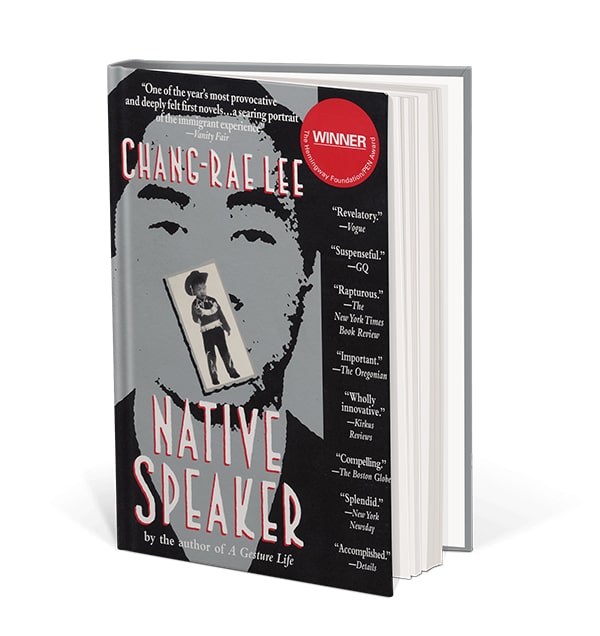
A Gesture Life was a huge wake up call that put a name to a widespread illness in the Korean American community. How do we avoid living the gesture life?
It’s difficult, because it’s so much easier to live a ‘gesture’ life. So much less painful, less harrowing, less fraught, and in this sense more ‘successful’. But essentially, I think we all know, that sort of engagement is depleted, it’s a half empty existence. That’s something that took me a while to realize about the book. The book is really about his (Doc Hata’s) psyche and the career of companionable, respectable, good citizen life, and how it’s all a self-deluding performance. The novel in this sense is a monster tale. For me, it was the most difficult of my books to write. To be in the main character’s psyche for so long made me feel ill.
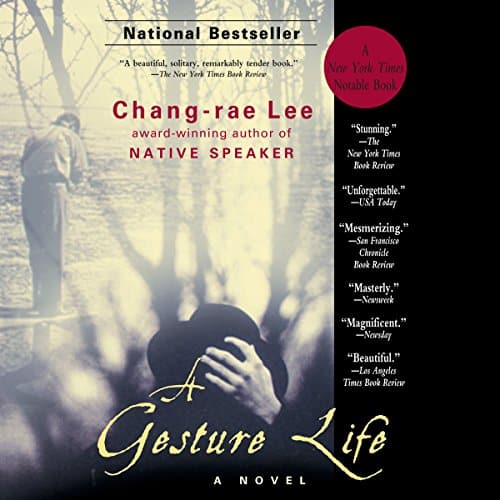
How are your Asian American students different from us or our parents?
They are so socially and critically aware. They’re very savvy in so many ways. Very competent. But I think there are also so many things going on in their lives that they feel a lot of anxiety too.
In My Year Abroad, the main character had maybe the most hilarious and best foot massage in the history of American literature. What is your experience with foot massages and why did you choose to write about that?
We went to Shanghai years ago and I got the classic Chinese foot massage. It was the most painful thing I had ever experienced. There was a point where I thought I might die and then toward the end I thought maybe I wouldn’t be able to walk again. But magically I felt great afterward. So I thought I could use the experience in Tiller’s story, which is a story about going out into the world and quaffing it as deeply and exuberantly as possible. But of course there is a cost to that, which I wanted to express through the steady escalation of the experiences – and danger – and what it does to him. Pain and renewal, action and transformation.
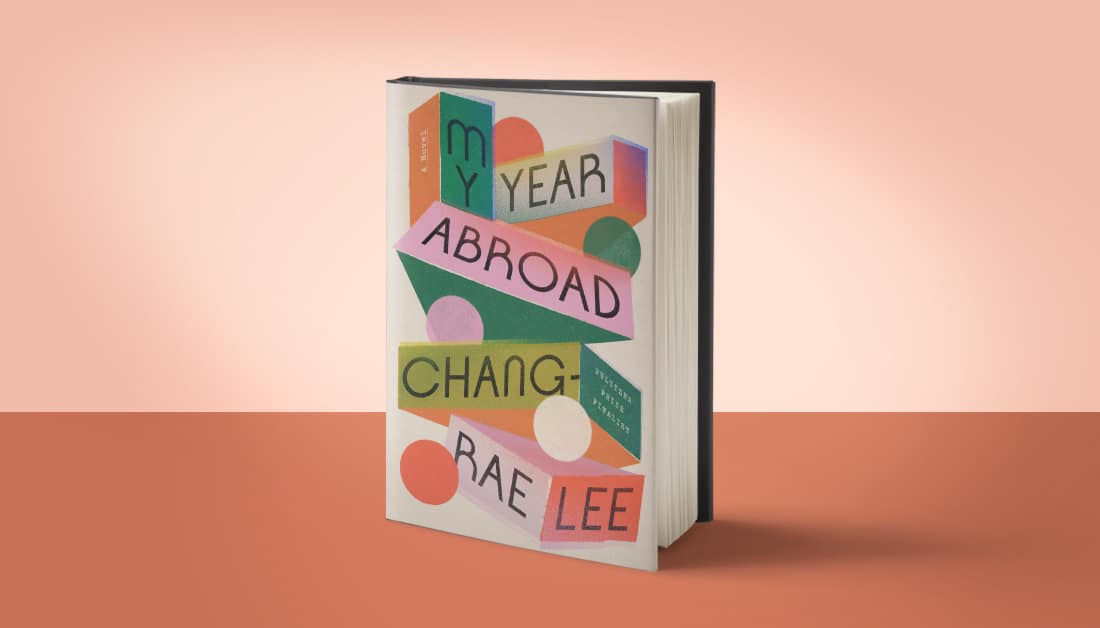
Throughout the book you poke fun at the American obsession with wellness. What is true wellness for you and how do you recharge your batteries?
I do a little yoga on the side, mostly for my chronically tight lower back and legs. I also enjoy golf, which when you have good partners is wonderful socially. It’s also a beautiful game that is endlessly complicated, and full of glory and tragedy. There’s a lot of time to mull over what you’ve done, which adds to the complexity. Of course there’s food and drink. Enjoying each day with something tasty and a glass of good wine. That’s wellness for me.
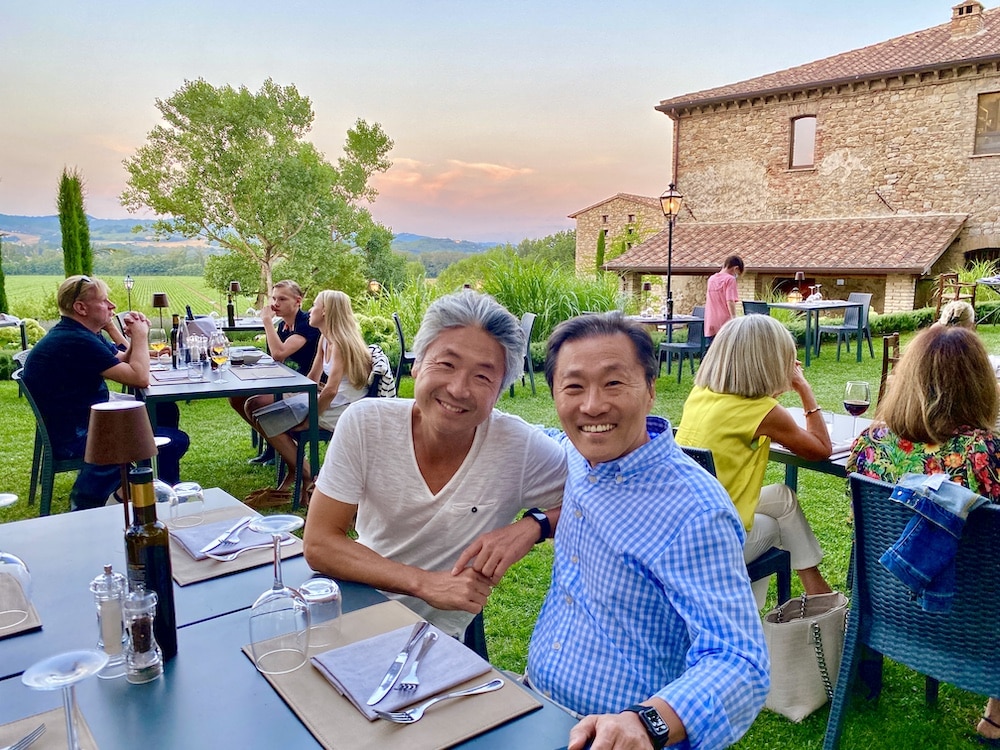
Which of your books would you most like to see made into a film or tv show?
All of them, but I’d love to see On Such a Full Sea as a series. With the various ‘worlds’ the protagonist travels between, and the attendant sets of characters, there’d be a lot to see and experience.
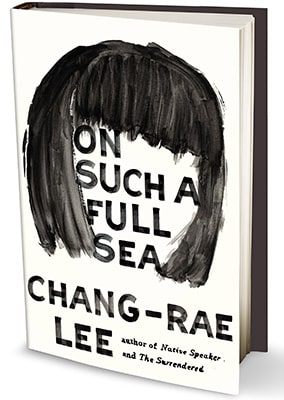
Learn more about Chang-rae Lee and his latest book, My Year Abroad, on the CKA podcast.





